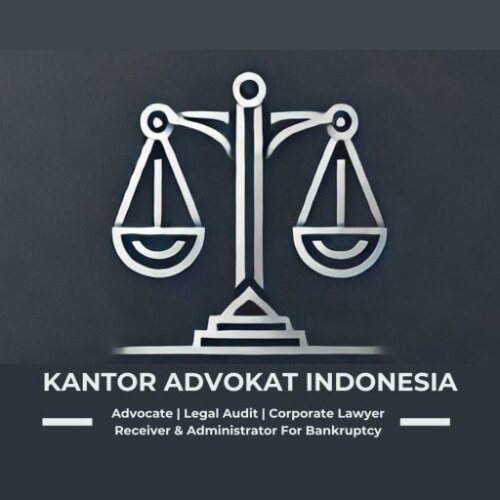Best Tax Increment Financing Lawyers in Indonesia
Share your needs with us, get contacted by law firms.
Free. Takes 2 min.
Or refine your search by selecting a city:
List of the best lawyers in Indonesia
About Tax Increment Financing Law in Indonesia
Tax Increment Financing (TIF) is a public financing method that is used to subsidize redevelopment, infrastructure, and other community-improvement projects in Indonesia. The concept involves capturing the future tax benefits of real estate improvements to pay for the present cost of those improvements. In Indonesia, TIF is used to stimulate economic development and address urban infrastructure needs, particularly in high-growth urban areas. The implementation of TIF requires careful coordination between government entities and private developers to ensure that the financial benefits are realized and reinvested effectively.
Why You May Need a Lawyer
Engaging with Tax Increment Financing in Indonesia can be complex due to the intricate legal and financial structures involved. Here are common situations where you may require legal help:
- Negotiating agreements between developers and government entities.
- Understanding and complying with local TIF regulations and requirements.
- Structuring financing deals that optimize tax benefits.
- Managing disputes or litigation arising from TIF projects.
- Ensuring compliance with tax laws and financial disclosure obligations.
A lawyer specialized in TIF is crucial in navigating these challenges and ensuring the smooth execution of projects.
Local Laws Overview
The legal framework for Tax Increment Financing in Indonesia is multifaceted and intersects with local government regulations, national tax laws, and urban planning policies. Key aspects of local laws relevant to TIF include:
- Regional Government Authority: Local governments in Indonesia have the authority to designate TIF districts and approve financing plans.
- Taxation Laws: Understanding how incremental taxes are calculated and leveraged is crucial for any TIF project.
- Public Participation: Indonesia requires public consultation processes before the implementation of TIF districts, ensuring community involvement.
- Legal Compliance: Ensuring that all agreements and project plans comply with Indonesian contract law and administrative regulations.
It is essential to stay informed on these laws and any updates or changes that may affect TIF initiatives.
Frequently Asked Questions
What is the primary goal of TIF in Indonesia?
The primary goal of TIF in Indonesia is to encourage economic development and revitalize urban areas by leveraging future tax revenues to fund current improvement projects.
Who is responsible for initiating a TIF project?
TIF projects can be initiated by local government authorities or private developers interested in revamping specific urban areas
What types of projects can TIF funds be used for?
TIF funds can be used for infrastructure development, urban renewal, housing projects, and other community-improvement activities.
How are TIF districts designated in Indonesia?
TIF districts are designated through a formal proposal and approval process by local government authorities, often requiring public input and consultation.
Are there risks associated with TIF projects?
Yes, risks include potential shortfalls in tax revenue projections, disputes between stakeholders, and changes in regulatory policies that may affect the project's financial viability.
Can TIF be used in all areas of Indonesia?
No, TIF is typically employed in urban areas with significant potential for development. Rural areas may not qualify due to different developmental needs and tax base characteristics.
How is the success of a TIF project measured?
Success is primarily measured through economic growth indicators, such as increased property values, new job creation, and enhanced infrastructure in the TIF district.
What role do private developers play in TIF projects?
Private developers often partner with local governments to implement TIF projects, bringing in expertise, capital, and development plans for revitalizing the area.
Do residents within a TIF district pay more taxes?
Residents do not pay more taxes because of a TIF. Instead, the increased tax revenue from property value growth is earmarked for related improvements.
How can I get involved in a TIF project?
Individuals can get involved by attending public consultations, engaging with local government discussions, or directly participating as stakeholders if they represent businesses or community organizations.
Additional Resources
Below are recommended resources and organizations to consult for further information on Tax Increment Financing in Indonesia:
- Ministry of Finance of the Republic of Indonesia: For tax policies and financial regulation advisories.
- Local Government Offices: For specific information about regional TIF projects and regulations.
- Indonesian Chamber of Commerce and Industry (KADIN): For business insights on engaging in TIF projects.
Next Steps
If you need legal assistance regarding Tax Increment Financing in Indonesia, consider the following steps:
- Consult with a legal professional who specializes in TIF and understands the local regulatory environment.
- Engage with local government bodies to understand current TIF projects and active policies.
- Attend seminars or workshops on TIF to increase your knowledge and network with industry experts.
- Review and stay updated on legislative changes that may influence TIF laws and practices.
Proactively seeking legal and professional advice ensures that your involvement in TIF projects is informed, compliant, and strategically sound.
Lawzana helps you find the best lawyers and law firms in Indonesia through a curated and pre-screened list of qualified legal professionals. Our platform offers rankings and detailed profiles of attorneys and law firms, allowing you to compare based on practice areas, including Tax Increment Financing, experience, and client feedback.
Each profile includes a description of the firm's areas of practice, client reviews, team members and partners, year of establishment, spoken languages, office locations, contact information, social media presence, and any published articles or resources. Most firms on our platform speak English and are experienced in both local and international legal matters.
Get a quote from top-rated law firms in Indonesia — quickly, securely, and without unnecessary hassle.
Disclaimer:
The information provided on this page is for general informational purposes only and does not constitute legal advice. While we strive to ensure the accuracy and relevance of the content, legal information may change over time, and interpretations of the law can vary. You should always consult with a qualified legal professional for advice specific to your situation.
We disclaim all liability for actions taken or not taken based on the content of this page. If you believe any information is incorrect or outdated, please contact us, and we will review and update it where appropriate.
Browse tax increment financing law firms by city in Indonesia
Refine your search by selecting a city.
















